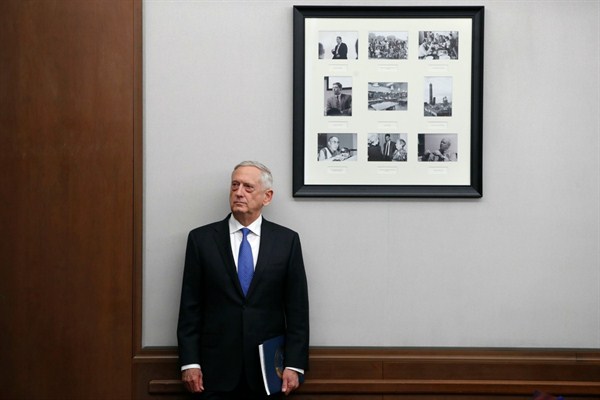No issue is more important for U.S. national security than America’s relationship with an increasingly powerful and assertive China. But it is also true that no issue is more complex. Two weeks ago, Secretary of Defense James Mattis released an unclassified summary of his new National Defense Strategy. Known among national security professionals as the NDS, the document outlined a major shift in U.S. security doctrine.
Before Sept. 11, America’s main security concern was what were called “rogue” states. After the terrorist attacks on the United States, transnational terrorism inspired by Islamist extremism moved to the fore. Then, during the Obama administration, American strategy lost its focus, vacillating among confronting threats from extremism, rogue states, great-power competitors and broad phenomena like climate change and the erosion of political authority. This was a problem: As the old saying goes, he who aims for nothing is guaranteed to hit it.
With the new NDS summary released by Mattis, focus is back. “We are emerging from a period of strategic atrophy,” it declares, when America’s “competitive military advantage has been eroding.” In its single most important sentence, the NDS asserts that “inter-state competition, not terrorism, is now the primary concern of U.S. national security.” This applies to both rogue states like North Korea and Iran and great-power competitors like Russia and China.

